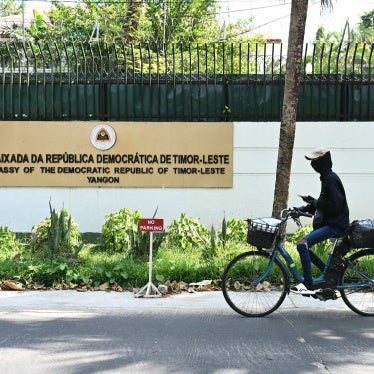Mr. President,
Rome Statute at 20
This year’s Assembly session finds International Criminal Court (ICC) states parties on the eve of an important milestone: the twentieth anniversary in July 2018 of the adoption of the court’s founding treaty, the Rome Statute.
In these 20 years, the court has grown from aspiration to reality. While the ICC continues to learn lessons from its early practice, it is increasingly positioned to act as the court of last resort that its founders envisioned.
Its mandate is one that regrettably is as important as ever. This has been evident in the prosecutor’s requests this year to open investigations in Burundi and Afghanistan.
As the court and its supporters push forward, there can be no doubt that there will be significant challenges. There is a changed political landscape to that of 1998. Consensus on the importance of justice can be elusive. In this Assembly, there has been too little attention to addressing non-cooperation and we urge strengthened efforts in this area next year.
But the cause of justice is no stranger to challenge, and the court has already known periods of political backlash. For as long as the ICC is doing its job, it will engender intense opposition from those who have reason to fear accountability. It has been the concerted efforts by and among states parties that have led to important results in overcoming that opposition.
The ICC needs the firm and consistent support of your governments to defend its mandate and to respect and defend its independence, and it needs to be able to count on that support when it matters most.
We look to the ICC’s states parties to seize the opportunity presented by the upcoming anniversary year. Through initiatives at the national and international level, we call on you to strengthen and make more visible your support for the ICC. Your efforts, we believe, will serve to bring new awareness in these more challenging times to the extraordinary commitment made in 1998 to stand resolutely with victims in the fight against impunity and that should not be neglected or lost.
We welcome the Assembly’s decision to hold a plenary debate on the twentieth anniversary at this session. At the debate, ICC states parties have the chance to help focus the Assembly’s vision on the broader picture and to launch initiatives that identify key challenges to be addressed in the coming year.
Ensuring adequate resources
Staunch support is essential to the court’s success, but so too are financial resources.
Human Rights Watch is deeply concerned that the current budgeting process for the ICC will continue to result in inadequate funding for the effective implementation of the court’s mandate.
The court has significant, outstanding resource needs; it is needed to act, at a faster pace, and in far more places than its current resources permit. And where it does act, it needs to bring charges representative of the most serious crimes and to do more to ensure victims can access their rights under the Rome Statute.
There is a significant mismatch between these needs and the Assembly’s budget negotiations, which appear aimed at satisfying a small number of states. We urge all states parties to consider that they, too, have a stake in the outcome of these negotiations, given the profound consequences for the court’s ability to deliver on the promise of Rome.
We look to states parties to scrutinize the Committee on Budget and Finance’s recommendations, to adopt a 2018 budget adequate to ensure the effective implementation of the court’s mandate, and to replenish the contingency fund up to the established threshold. We also look to states parties to call in their statements during this session for changes in the Assembly’s consideration of the budget so as to ensure decisions on its size are aimed at equipping the court to better and more efficiently meet the heavy demands and expectations for justice before it.
Adoption of proposed amendments to Article 8
In July 2017, Belgium deposited proposed amendments to the Rome Statute with the UN secretary-general. These amendments would add four war crimes to Rome Statute article 8, specifically, the use of:
- Biological or toxin weapons;
- Anti-personnel mines;
- Weapons causing injuries by fragments that in the human body escape detection by X-rays; and
- Weapons causing permanent blindness.
Human Rights Watch supports the adoption of these amendments.
Human Rights Watch is a co-founder and serves as chair of the International Campaign to Ban Landmines, a 1997 Nobel Peace Prize Co-Laureate. As such, we work for the universalization, implementation, and compliance of the Mine Ban Treaty, including adherence by the 35 states that have not acceded to it. We also worked for the adoption in 1995 of the protocol prohibiting blinding laser weapons. The weapons covered by the proposed amendments have been widely prohibited, but, at least with regard to anti-personnel landmines, are still in use by the armed forces of two states and non-state armed groups in approximately 10 countries, particularly the armed groups affiliated with the Islamic State (also known as ISIS).








